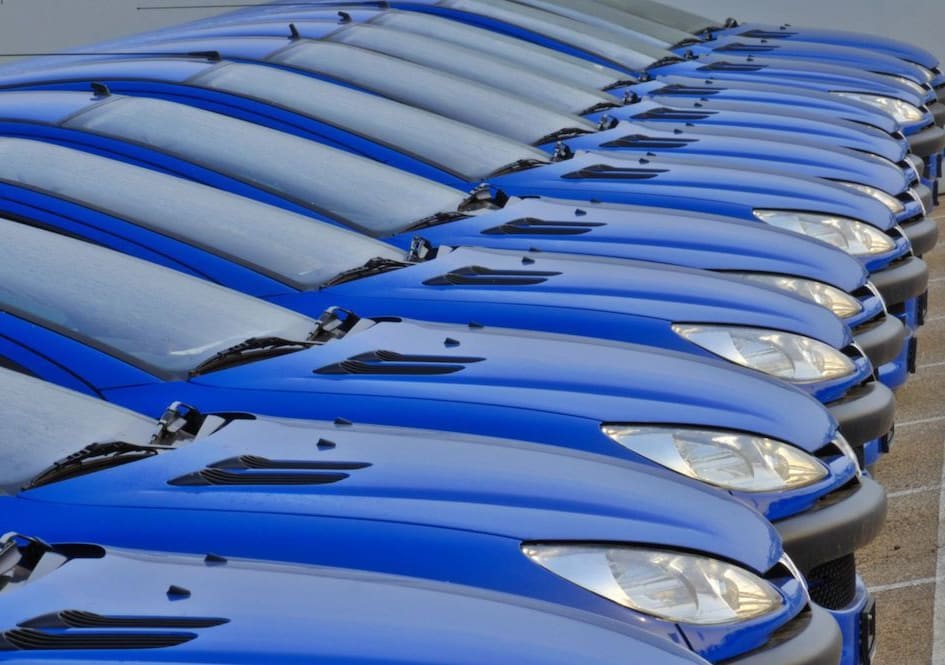Freedom of information requests submitted by heycar has lifted the lid on the huge number of Ultra Low Emission Zone (ULEZ) penalty charge notices (PCNs) that are being cancelled due to car cloning.
In April 2022, the number of PCNs being cancelled was 857% higher than in the same month in 2021. And there has been a 631% increase in PCNs being overturned due to cloning since the ULEZ was expanded in October 2021.
A driver with a ULEZ PCN will typically be hit with a £160 fine by Transport for London, which will be reduced to £80 paid within 14 days.
What is car cloning?
Vehicle cloning can take various forms, with a criminal either physically stealing the number plate or having a fake plate illegally made to put on another car. Cloned number plates are typically used on vehicles that are stolen, unroadworthy or used in illegal activity.
Car cloning is part of a wider increase in vehicle crime. In England and Wales, there has been a 7% rise in vehicle theft, with one area reporting a 37% spike since Covid-19 restrictions were lifted.
What should I do if I think I’ve been a victim of car cloning?
Report it to the police and the DVLA. A marker will be added to the Police National Computer and the police will stop any vehicle that displays a duplicate number plate. You should also notify the DVLA - they may issue your car with a replacement number plate.
How can I appeal a parking ticket or penalty charge if my car has been cloned?
Appeal the penalty charge notice as detailed on the back of the ticket. You usually get 28 days to appeal and should explain why you are not responsible for the fine, whilst providing any evidence you have to back up your claim.
If you have a police incident number or a crime reference then make sure you include this as part of the formal appeal.
Sometimes the cloned vehicle will not match the colour or make/model of the car that has been cloned. Likewise, if you have evidence that you were in a different part of the county then include this as part of your appeal.
If your formal challenge is rejected you will have another 28 days to either pay the PCN or appeal to an independent tribunal. It is free to take your case to an independent tribunal.
Case study: Marc Cramsie, aged 72, from London
Marc Cramsie, aged 72 from London was faced with six different PCNs, potentially costing up to £1,070 when he was a victim of car cloning in 2021.
Three of the PCNs were from Transport for London (TfL) for the congestion charge, two were from Lambeth Council for failing to comply with a prohibition on certain types of vehicle, and being in a bus lane, and one was from Brighton and Hove City Council for being in a bus lane.
Although Marc paid the first fine he received he quickly realised his vehicle had been cloned when more PCNs arrived and he decided to appeal - a process which took six months in total, despite evidence of his innocence.
“For the PCN for Brighton I wasn’t even in the country at the time - I had my flight details and my boarding cards but that didn’t impress the council,” he said.
Marc’s car also had a resident parking sticker on the windscreen - the cloned car didn’t. But that fact did not overturn the PCNs either.
Both TfL and Brighton and Hove City Council wanted evidence that the police were investigating Marc’s car being cloned.
“They wanted the police station details and a crime reference number but when I rang up the police they logged my call but did not give me a crime reference as they couldn’t treat it as a crime,” he said.
When a driver reports their vehicle has been cloned in the UK the police put a marker onto the Police National Computer database to say that that vehicle is likely to be a duplicate identity and that allows officers to potentially stop that vehicle and verify who the owner of that vehicle is.
Sussex Police assisted Marc by writing to Brighton and Hove City Council to confirm he had spoken to them, while the Met Police asked Marc to request that Lambeth email them to receive confirmation that the incident had been accepted by them.
“There was a mismatch between the way that the council thinks the police should operate and the way the police actually do operate,” Marc said.
Marc also reported the matter to Action Fraud, the UK's national reporting centre for fraud and cyber crime, which generated a case number but “that didn’t seem to make a difference either”.
Eventually, Marc took his case to tribunal and was successful.
“The adjudicator spotted that the number plate on the cloned car had two bolt holes in it - that seemed to be the deciding factor,” he said.
Marc then wrote to TfL and Lambeth Council to say that Brighton had allowed his appeal and they both also cancelled their PCNs. However, Lambeth would not refund the initial PCN which Marc had paid as he had lost his right to appeal
“The presumption very much seems to be that you're guilty until you can prove your innocence,” said Marc.
“Somebody less dogged than me might be frightened into just paying up when they don’t need to.”








